- News
- Reviews
- Bikes
- Components
- Bar tape & grips
- Bottom brackets
- Brake & gear cables
- Brake & STI levers
- Brake pads & spares
- Brakes
- Cassettes & freewheels
- Chains
- Chainsets & chainrings
- Derailleurs - front
- Derailleurs - rear
- Forks
- Gear levers & shifters
- Groupsets
- Handlebars & extensions
- Headsets
- Hubs
- Inner tubes
- Pedals
- Quick releases & skewers
- Saddles
- Seatposts
- Stems
- Wheels
- Tyres
- Tubeless valves
- Accessories
- Accessories - misc
- Computer mounts
- Bags
- Bar ends
- Bike bags & cases
- Bottle cages
- Bottles
- Cameras
- Car racks
- Child seats
- Computers
- Glasses
- GPS units
- Helmets
- Lights - front
- Lights - rear
- Lights - sets
- Locks
- Mirrors
- Mudguards
- Racks
- Pumps & CO2 inflators
- Puncture kits
- Reflectives
- Smart watches
- Stands and racks
- Trailers
- Clothing
- Health, fitness and nutrition
- Tools and workshop
- Miscellaneous
- Buyers Guides
- Features
- Forum
- Recommends
- Podcast
TECH NEWS
Superbike Just In: Bianchi Oltre XR4
The brand new Bianchi Oltre XR4 race bike has just arrived at road.cc for testing, a bike that is being ridden in the pro peloton by the Lotto NL Jumbo team. Let’s have a look before we take it out on the road.
Oltre models have been in the Bianchi range for a few years now, the XR1 and the XR2 both having impressed us massively in combining low weight and high rigidity.
Check out our Bianchi Oltre XR1 review here.
Read our Bianchi Oltre XR2 review here.
Bianchi has skipped the XR3 in the sequence and moved right on to the Oltre XR4, a bike that differs from its predecessors in featuring Countervail technology.
What the Dickens is Countervail technology? Luckily, Bianchi is on hand to tell us.
“Countervail is a patented viscoelastic carbon material with a unique fibre architecture that cancels up to 80% of vibrations while increasing the stiffness and strength of our carbon frames and forks.”
So now you know. The Countervail material is embedded within the carbon structure.
And what’s the point of that? Well – whaddya know? – Bianchi has an answer for that too.
“Countervail provides unparalleled vibration cancelling properties, ensuring the frame’s optimum performance at high speed. Countervail eliminates road buzz to maximise ride control, and reduces muscular fatigue.
“Countervail cancels road vibrations and reduces turbulence in the frame that affect its performance. It enhances peak power output by maximising the vibrational dissipation in the surrounding polymers. Advantage: hold your extreme aero position at high speeds for longer and maximise your aerodynamic advantage.”
That’s the official line. Bianchi has already used CounterVail technology on its Specialissima, Infinito and Aquila (time trial) models.
Read our Bianchi Specialissima review here.
Anyway, that’s enough talk about the CV; Bianchi has been busy updating other aspects of the Oltre's design too, including the shape of the frame tubes as a result of CFD (computational fluid dynamics) and flow visualisation, a technology that's used extensively by F1 teams. It says the changes have resulted in significant aerodynamic improvements over the XR2.
The aero head tube is said to have been inspired by Aquila CV time trial bike profiles. It is available with two different top cups, one for use with a conventional stem and the other for use with the Vision Metron 5D combo handlebar/stem that we have fitted to our review bike. This handlebar and top cup give an integrated front end.
Find out what we think of the Bianchi Infinito CV here.
The seatstays are positioned wide of the rear wheel and they’re aero profiled to reduce drag.
Bianchi has switched to direct mount brakes, the rear one completely shielded by the wishbone seatstays.
The seatpost clamp sat flush with the frame on the XR2 but Bianchi has moved to a wedge type design for the XR4, the bolt tucked inside the top tube.
The chainstays are now wider for higher stiffness. A metal insert is added to the carbon dropout. The driveside chainstay is designed to be absolutely straight so threading a cable or Di2 wire down it is simpler than before.
The front derailleur now lives on a removable bracket that’s designed to be stronger than a band type clamp.
The aero seatpost has an adjustable head and a clamp offset of either 25mm or -10mm.
The bottom bracket is press fit 86.5 x 41.
The full carbon fork did take a 1 1/2in lower bearing before but that has been slimmed down slightly to 1.4in.
The crown integrates with the frame and the fork legs have a narrow frontal surface area, again inspired by the Aquila CV time trial bike.
The Oltre XR4 CV is built to a race geometry that’s very slightly altered from that of the XR2, with head tubes 5mm shorter across all seven sizes to take account of the new headset system. The 57cm frame that we have for review, for example, has a head tube that’s 155mm rather than the previous 160mm. The stack height (the vertical distance from the centre of the bottom bracket to the top of the head tube) is 557mm (down from 561mm), and the reach (the horizontal distance between those points) is 395mm (up from 393mm).
The Oltre is available in several different builds:
Campagnolo
• Super Record EPS (£9,500)
• Super Record mechanical (£7,500)
• Chorus mechanical (£4,700)
Shimano
• Dura-Ace Di2 (£8,600)
• Dura-Ace mechanical (£6,800)
• Ultegra Di2 (£5,000)
SRAM
• Red eTap (£7,500)
In addition, some of the builds have different wheel and chainset options, so there are actually 26 choices in total, all built around the same Oltre XR4 CV frame. You can have Zipp 404 Firecrest wheels on the Shimano models, for example, with the price adjusted accordingly. The frameset price is £3,100.
We have the Campagnolo Super Record mechanical version, which will please those people who believe a bike from an Italian brand has to be fitted with a groupset from an Italian brand. Rather than Fulcrum Racing Zero Carbon wheels, our bike has Campagnolo Bora Ultra 50 Dark tubular wheels. That bumps the price up to a not insignificant £9,500.
Bianchi claims a frame weight of 980g (55cm frame, +/-5% black) and a fork weight of 370g, while our complete 57cm bike weighs just 6.53kg (14.4lb), without pedals. That’s the lightest bike we’ve had in for test at road.cc for a while. Once you’ve added pedals, it might still be just below the UCI’s minimum weight limit for racing (depending on the pedal model).
The price tag puts the Bianchi Oltre XR4 well into super bike territory. In the road.cc Superbike Shootout 2015-16, we set the figure for qualifying as a superbike at a totally arbitrary £3,000. Whatever the cutoff this time around, I think we can safely say that the Oltre will be above it. This is easily the most expensive complete bike that we’ve had in for review this year. The next most expensive is the £6,199 Cervelo C5 Dura-Ace Disc (above). That’s a carbon-fibre performance bike but it comes with hydraulic disc brakes so it’s a different proposition to the Bianchi. It’s a great bike, though, Dave Arthur saying, “Fast, stable, predictable and balanced, Cervélo's new C5 is a class leader”.
We’ve also reviewed the Look 795 Aerolight (above), priced at £4,449.99 for just the frameset. A complete bike with a Shimano Dura-Ace mechanical groupset and Mavic Aksium Elite wheels is £6,209.99. We described it as “an innovative aero road bike that delivers plenty of speed, but only for those with a large budget”.
That’s, frankly, loads of information for you to be going on with for the time being. More than generous, if you ask me (you didn’t ask me? Oh!). The theory sounds great but we need to get some miles in to find out how the Bianchi performs in practice. The roads are a-calling. We’ll be back with a review on road.cc soon.
Mat has been in cycling media since 1996, on titles including BikeRadar, Total Bike, Total Mountain Bike, What Mountain Bike and Mountain Biking UK, and he has been editor of 220 Triathlon and Cycling Plus. Mat has been road.cc technical editor for over a decade, testing bikes, fettling the latest kit, and trying out the most up-to-the-minute clothing. He has won his category in Ironman UK 70.3 and finished on the podium in both marathons he has run. Mat is a Cambridge graduate who did a post-grad in magazine journalism, and he is a winner of the Cycling Media Award for Specialist Online Writer. Now over 50, he's riding road and gravel bikes most days for fun and fitness rather than training for competitions.
Latest Comments
- thered 18 min 10 sec ago
Why don't you offer to give home some tips?
- No Skinny Tyres 48 min 10 sec ago
It's a stabiliser, it was first used in WW2 to preserve chocolate in US rations. It allows the milk solids to fully dissolve, US chocolate is less...
- Rome73 1 hour 4 min ago
LOL , me too the other day, I was on my GSD and got stuck behind a Cadillac Escalade (I think that is what they are called). It was so fat and over...
- eburtthebike 9 hours 35 min ago
The deterrent effect is almost certainly due to the massively increased likelihood of the offence being detected. As with other crimes, if the...
- Martin1857 10 hours 2 min ago
As a member of the Co-op community (I live in a Housing Co-op) and a bike owner /rider, this is very sad news. We need more Co-ops not less.
- Dnnnnnn 9 hours 54 min ago
It is sad for the individuals concerned but (and this is a general point, rather than specific to this story), we're much better off overall for...
- No Reply 10 hours 44 min ago
I agree with Pogacar regarding social media. The likes of Facebook, Instagram have done untold damage, especially to the minds of young people....
- David9694 10 hours 49 min ago
Lorry carrying 25 tonnes of beer catches fire on the M11...
- ktache 11 hours 54 min ago
That looks like a fun bike. Frame only, 2 and an 1/2 grand.







































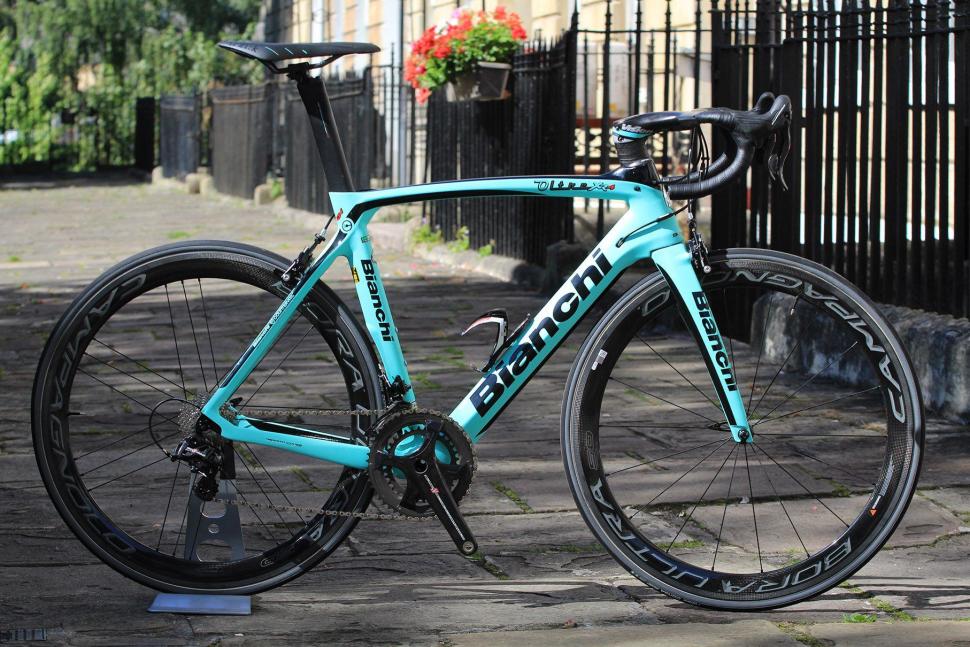
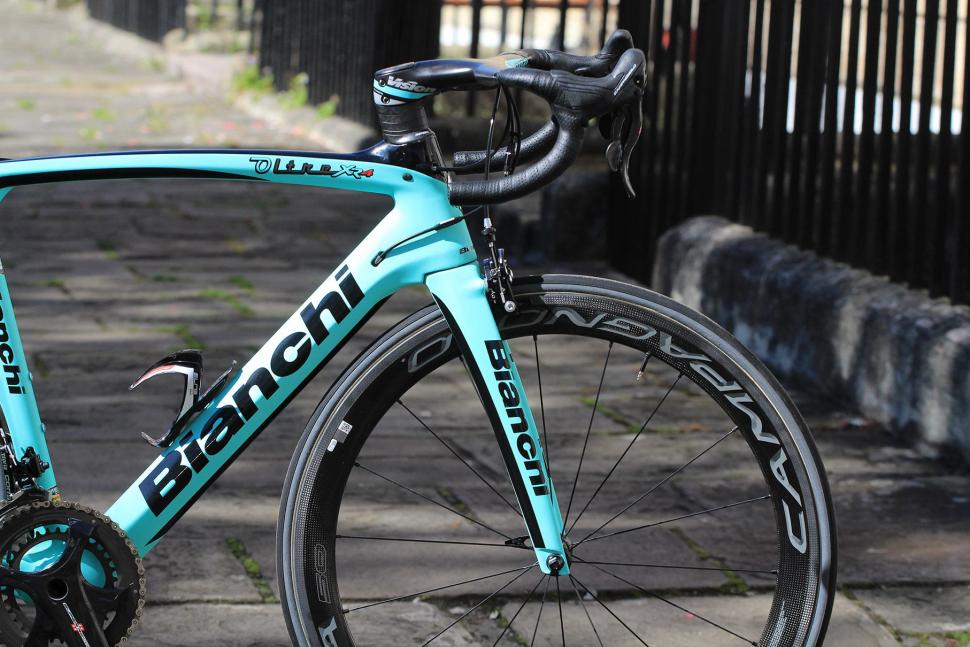
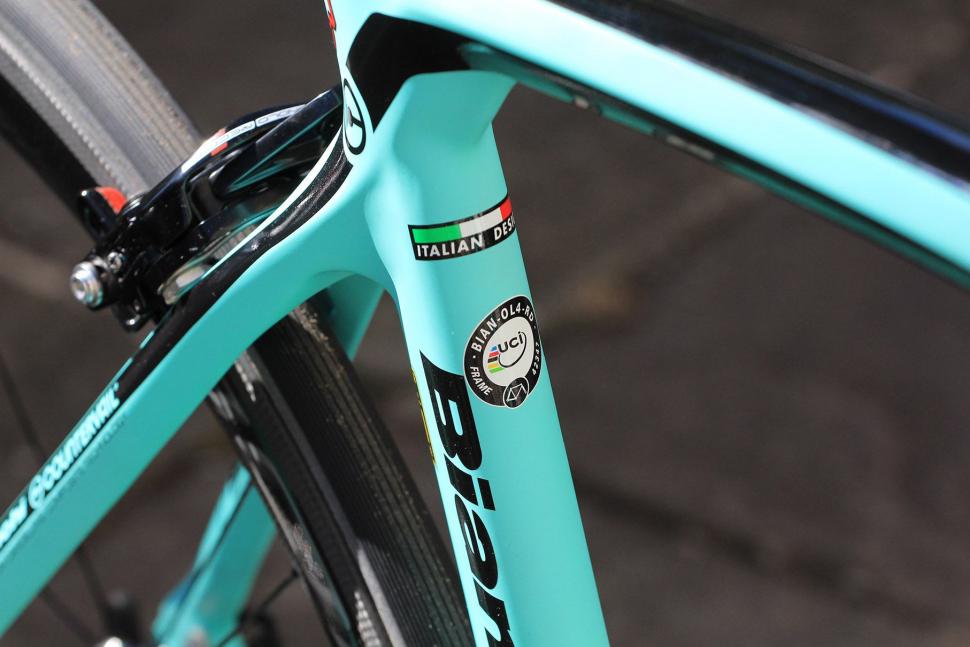
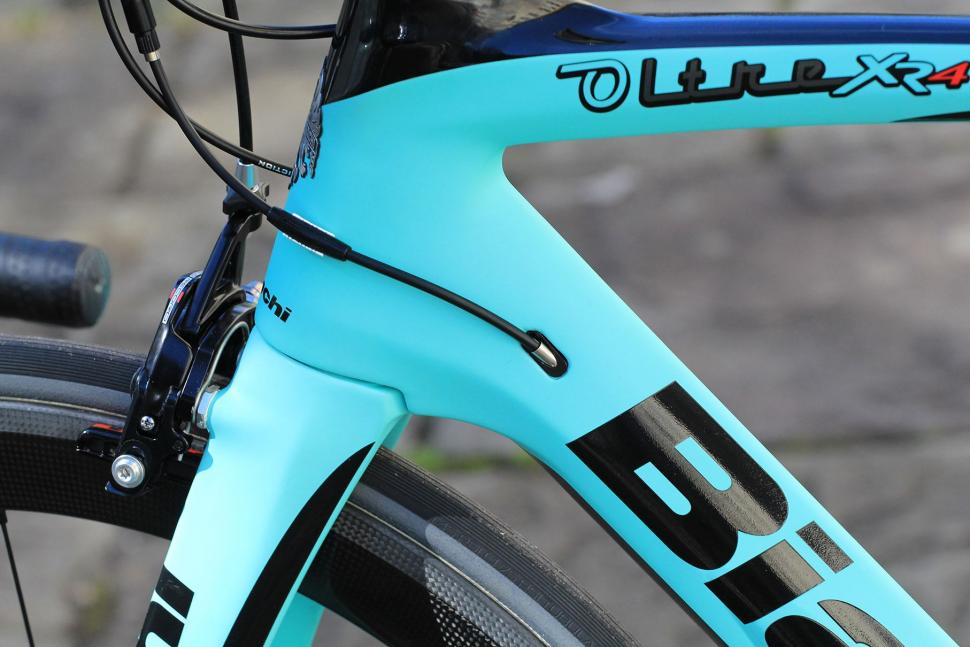
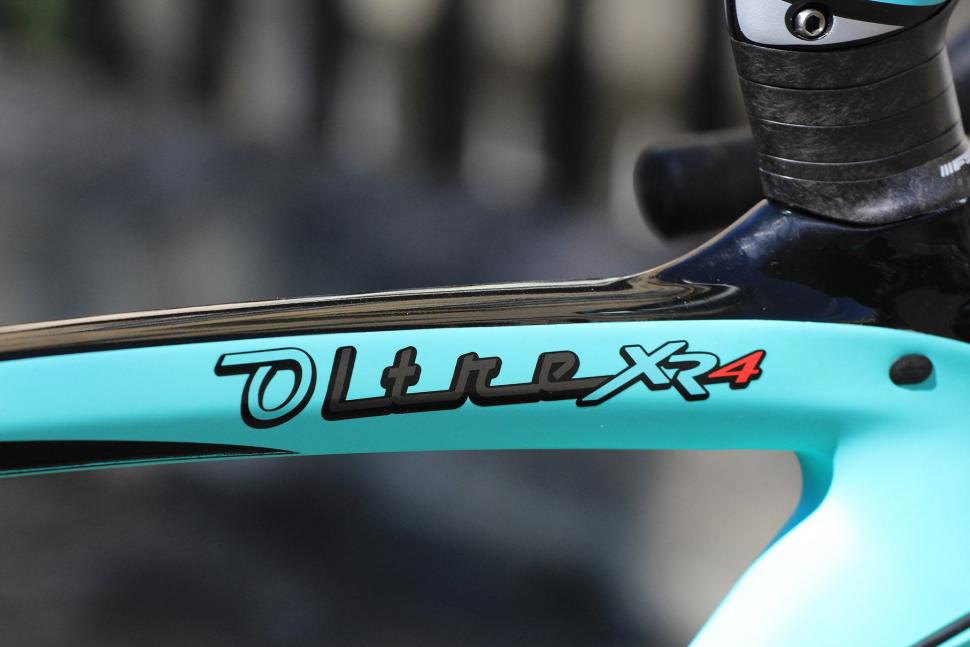
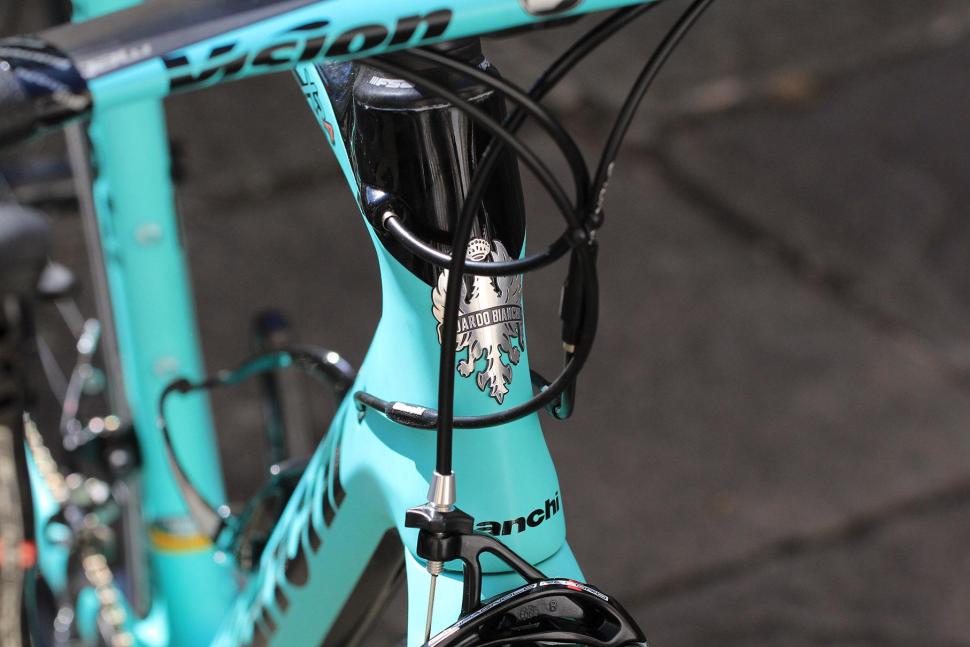
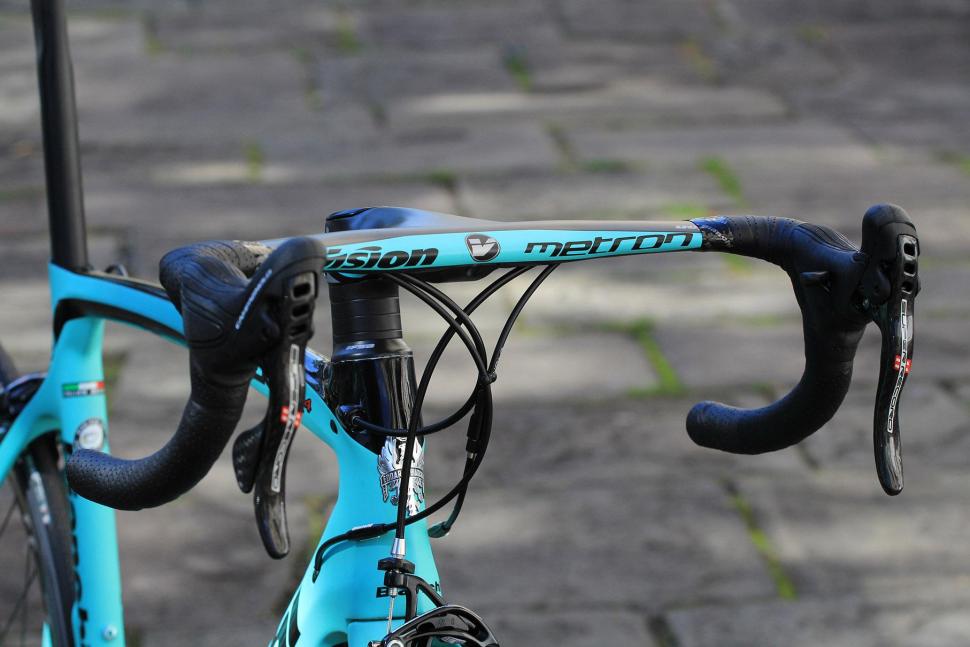

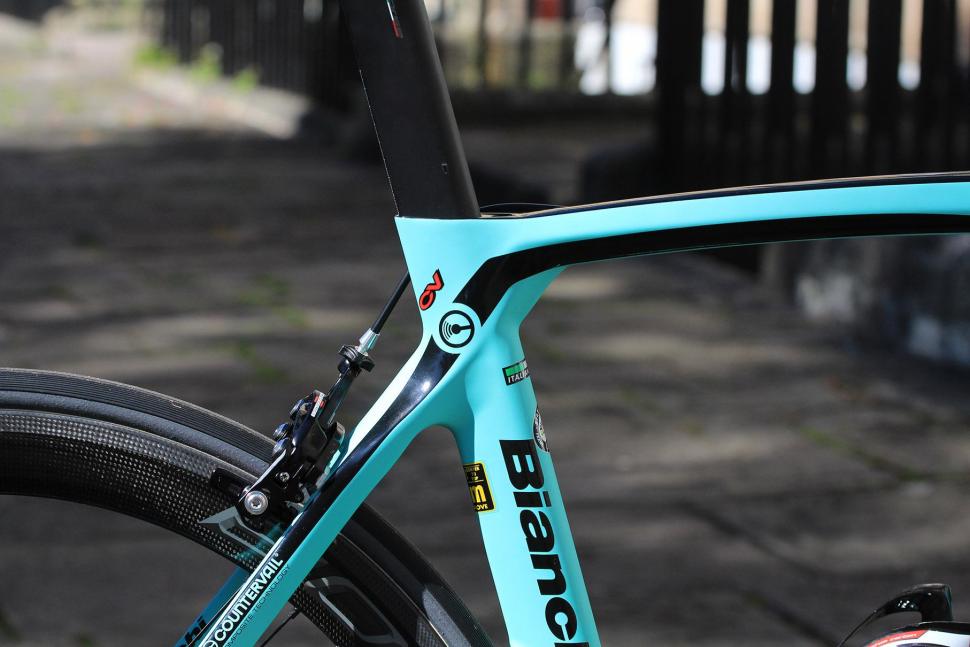
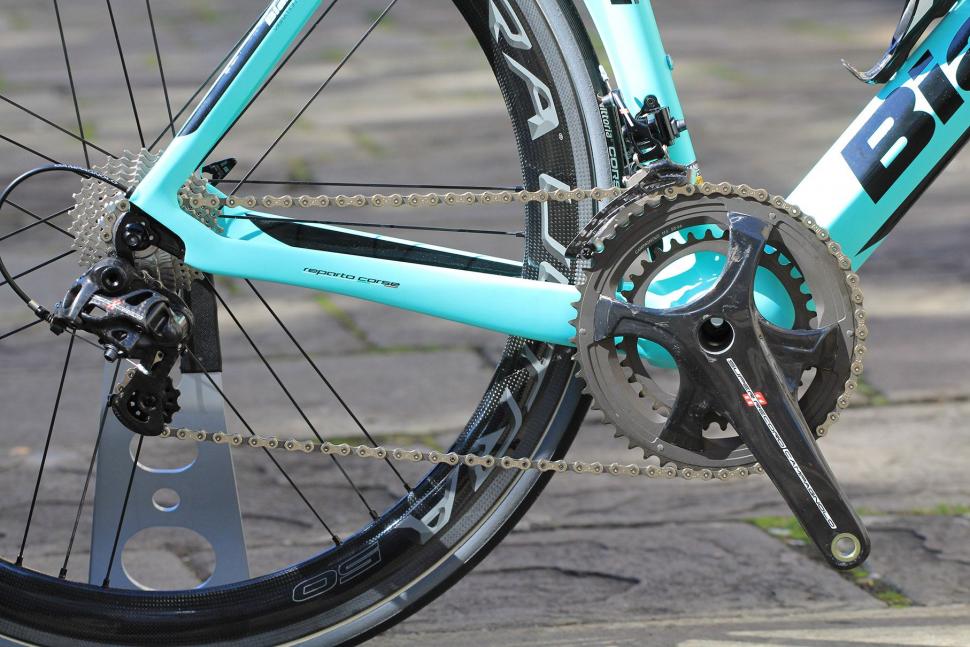
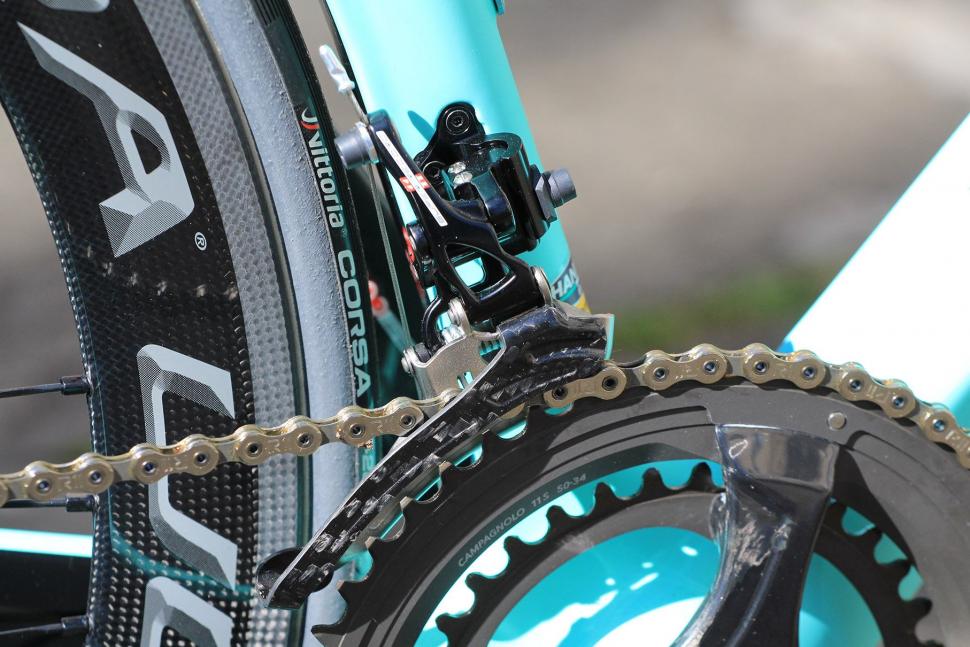
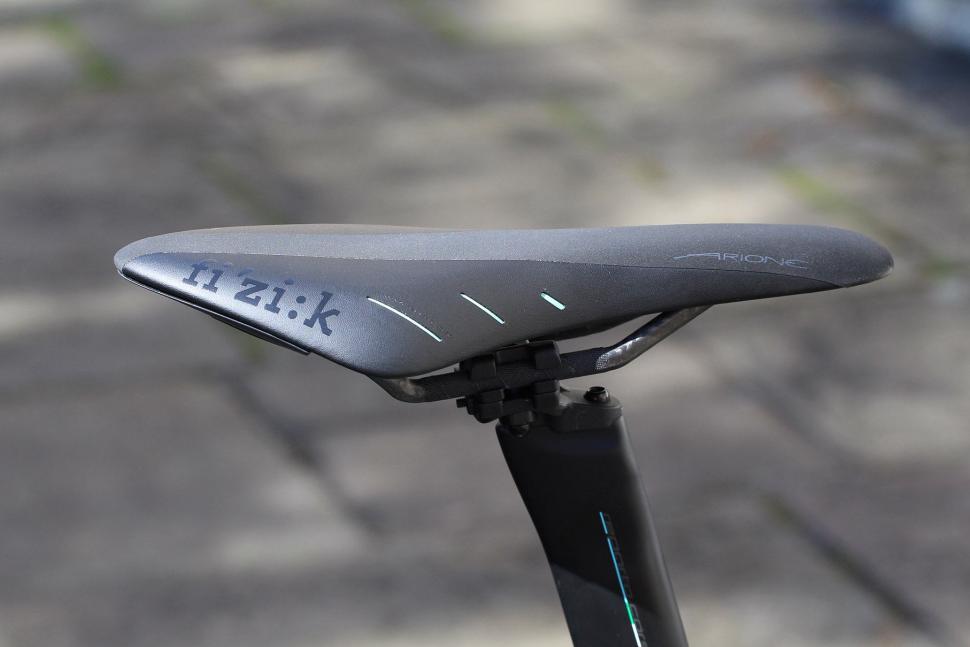
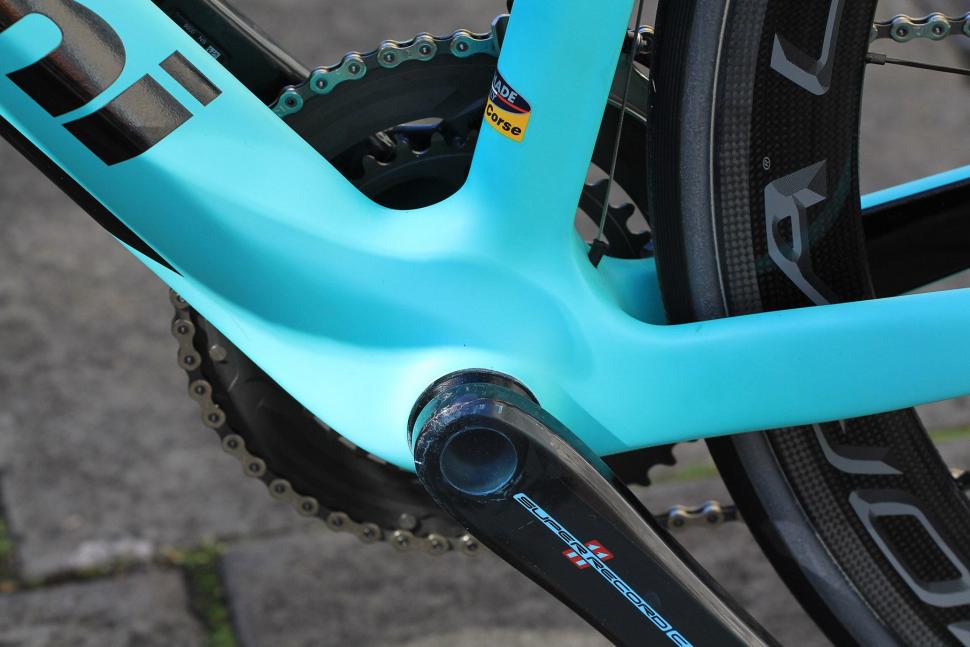


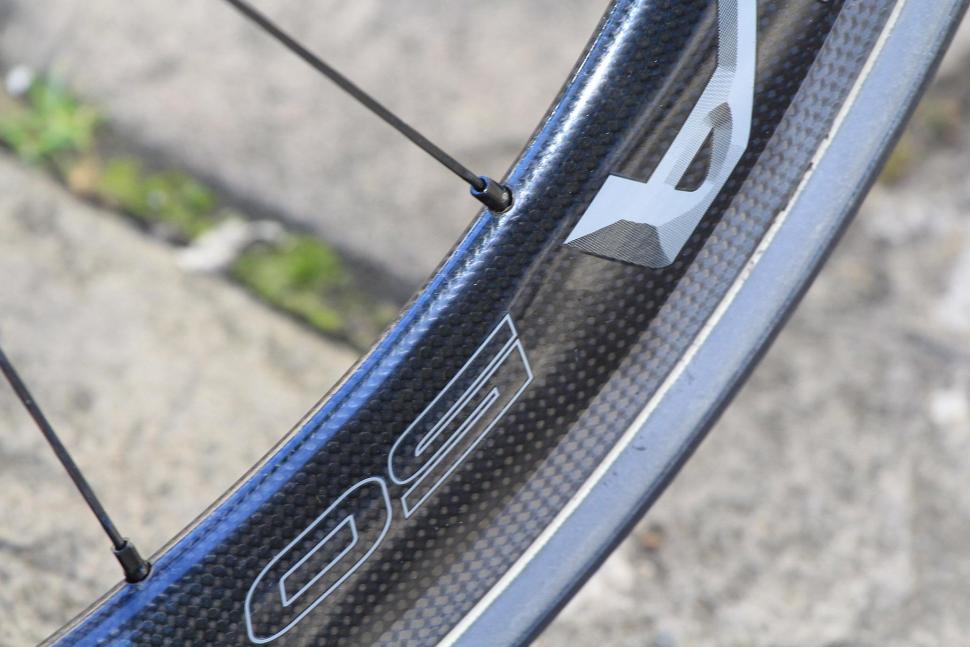
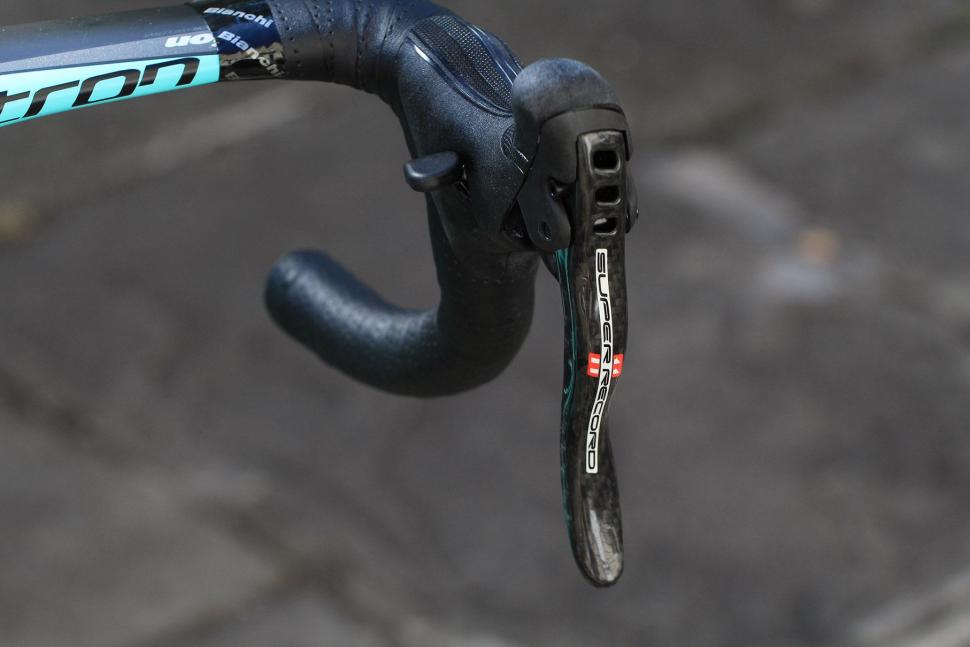
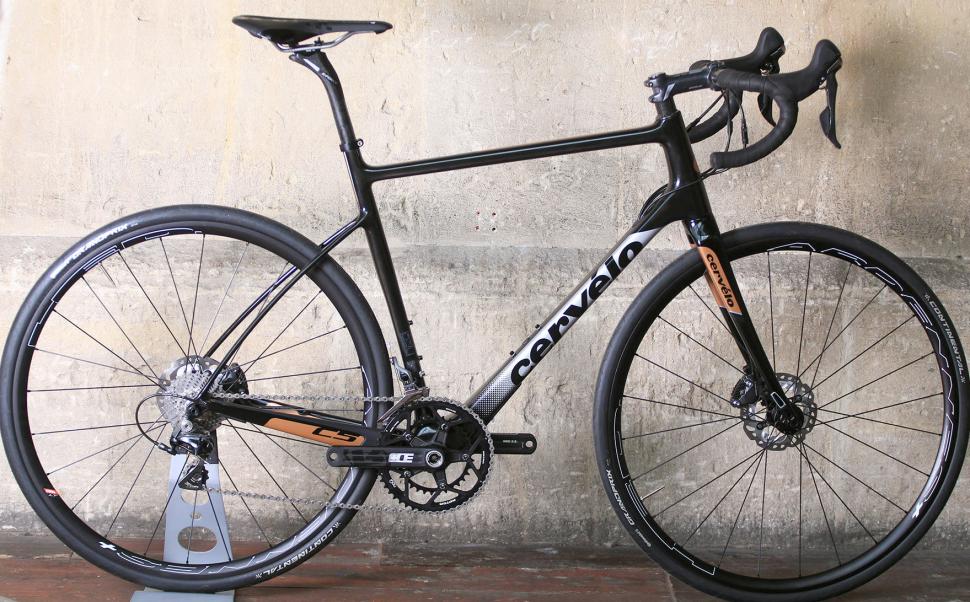
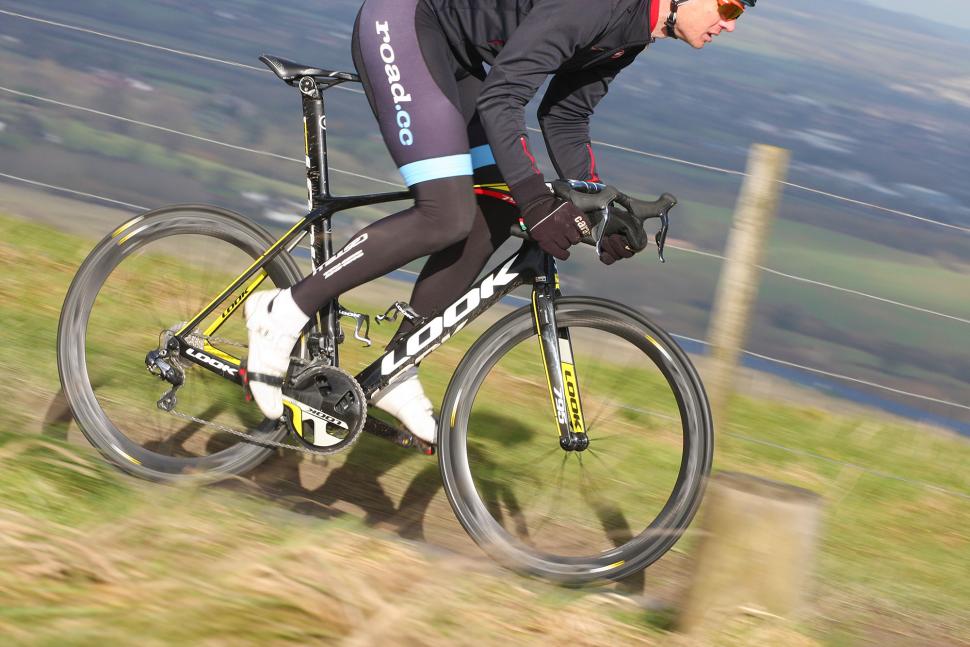
Add new comment
6 comments
Re XR4
Just sneaked down to the bogs at work to crack one off.
Yeah, I'd do it.
I'd take the countervail splaff with a pinch of salt. I can't really feel a difference in comfort over 3-4 hours between countervail and my six year old Focus.
Creaky, overpriced, aero-ish, girly-neon bike that can't win a stage.
Which I'd sell a kidney for in all honesty.
It has won a stage now:
http://www.bianchi.com/it/news/news_detail.aspx?newsidmaster=347447&news...
Let the coveting begin.